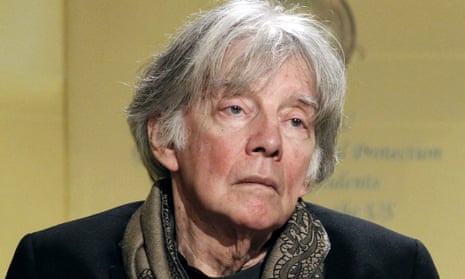The French philosopher André Glucksmann, a former Maoist who veered to the right after condemning the crimes of communism, has died at the age of 78.
The passionately political thinker rose to prominence in the 1970s alongside Bernard-Henri Levy as one of France’s “New Philosophers”, who broke with Marxism after street protests brought the country to the brink of revolution in 1968.
Strongly influenced by Russian dissident Alexander Solzhenitsyn’s 1975 account of his time as a political prisoner in The Gulag Archipelago, Glucksmann railed against Soviet totalitarianism in his book The Cook and the Cannibal, setting him on a collision course with leftwing existentialist intellectuals led by Jean-Paul Sartre.
But despite their differences, Glucksmann managed to persuade Sartre to join with France’s then leading rightwing thinker Raymond Aron in campaigning for the Vietnamese “boat people” as they fled its communist regime in their thousands in 1979.
His friend, the writer and philosopher Pascal Bruckner, who has followed a similar path from left to right, told French radio that Glucksmann would be remembered for “delivering the staggering blow against communist thinking in France”.
He said: “At the time he had an enormous number of enemies, of people opposing him, but he held on. His ideas weren’t just passing thoughts, they were real engagements which he physically stuck to every day.”
Glucksmann’s death was announced by his son Raphael, who wrote on Facebook: “My first and best friend is no more.” He described his father as “a good and excellent man”.
The French intellectual Bernard-Henri Lévy said he had been shaken by the news. “He was the only one of my contemporaries with whom I had the feeling of sharing the same fears about the world,” he said.
Having survived as a Jewish child in Nazi-occupied France – a trauma recounted in his 2006 book A Child’s Rage – Glucksmann became an advocate of international military intervention, accusing the west of “deliberate blindness” to the evils around it.
He later supported US-led invasions of Iraq and Afghanistan, and lobbied on behalf of Chechen Muslims during their war with the Russian government in the 1990s, later warning against European appeasement of President Vladimir Putin. “Recklessness and forgetfulness create the conditions for new catastrophes in both the economy and politics,” he said.
The French president, François Hollande, paid tribute to Glucksmann, describing him as a man who “carried in him all the dramas of the 20th century … and spent all his life and intellectual training in the service of liberty”.
With his pudding-bowl haircut, Glucksmann was an instantly recognisable face on France’s late-night television discussion programmes, and one of the country’s most prominent intellectuals.
But ill with cancer, he appeared less and less in public after the publication of The Novel of the Universal Jew in 2011. “He had several cancers, and he really battled,” one of his publishers said.
Despite still claiming to be “of the left”, Glucksmann publicly supported Nicolas Sarkozy’s successful bid for the French presidency in 2007. Sarkozy said on Tuesday that he had been “honoured by his friendship” and said the philosopher had never allowed his “thinking to be prisoner to ideological diktats”.
The former socialist culture minister Jack Lang said that while he often disagreed with Glucksmann, as the son of central European refugees who had fled to France he was always a fearless defender of the weak.
“The way a good part of western society is now behaving towards the migrants is similar to what he attacked with regard to the boat people,” he said.
